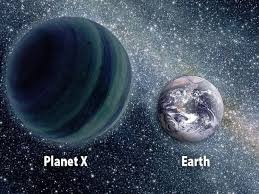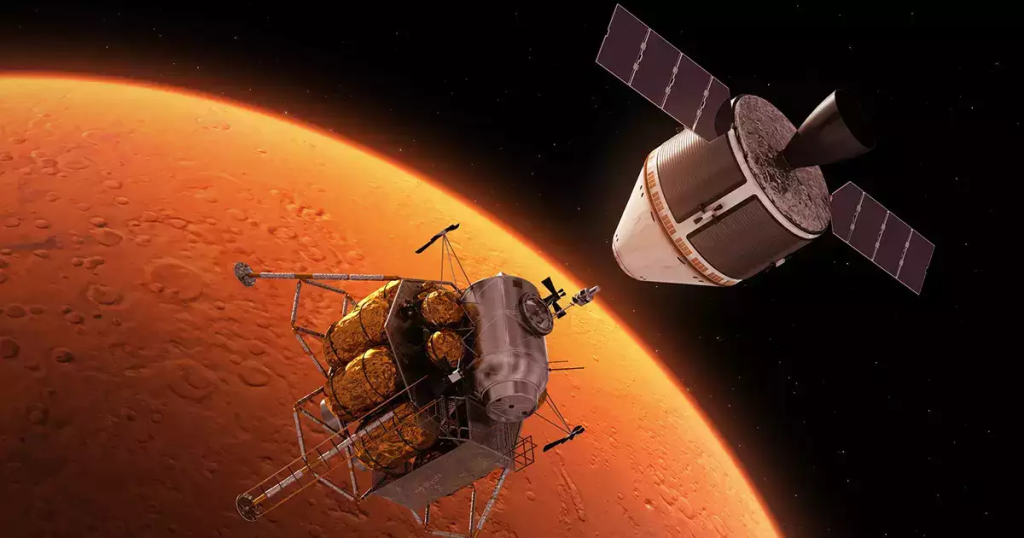The Question of “Is There Life on Mars?” is About to Be Answered
One of humanity’s greatest characteristics since the dawn of civilization has been to look up at the sky and wonder about the stars and planets. We can see traces of this, particularly in the civilizations that existed in these lands, both at Göbeklitepe and in the inscriptions left by the Sumerians. Of course, the two planets closest to us, Venus and Mars, have become the focus of this interest due to their visibility in the sky. In recent years, Mars, known as the red planet, by our ancestors, has become particularly captivating. Many scientists and science fiction writers have asked the question, “Is there life on Mars?” and this question has been frequently explored since the 19th century. But could there really be life on Mars? Recent discoveries allow us to get a little closer to this question, but we are still far from a definitive answer.
First, let’s take a look at the development that excites us. The Perseverance rover has encountered a significant rock in Mars’ Jezero Crater: dubbed “Cheyava Falls,” it exhibited unidentified “leopard-like spots.” These spots are thought to have formed in an environment rich in iron oxides and also contain traces of organic material. For example, this finding could indicate the presence of liquid water; it is also assumed that the rock formed through mud-derived sedimentary processes. In the words of scientist Oleg Abramov, “This has the potential to be the best micro-life find yet.” While not definitive proof of life, it is still considered one of the most significant indicators that life may exist on Mars.
This type of find appears more robust than the previously reported case of the Martian meteorite “ALH84001.” In 1996, life-like traces were claimed in this meteorite, but many researchers later attributed these to inorganic processes. However, the current findings present a significant difference. The rock found at Jezero was detected directly on the Martian surface by a rover and sealed for processing into samples. Indeed, Perseverance sealed and preserved this rock fragment for return to Earth. This means that there is a promising preparation for detailed laboratory analysis.
However, uncertainty remains about whether these signs represent life. For example, the methane detected in the Martian atmosphere could be of biological origin or result from geological processes. While the presence of a gas is striking, it does not in itself constitute evidence of life. Therefore, the question of whether life ever existed on Mars remains at the “could it be?” level, but increasingly new data and findings suggest that life may exist on Mars. Some scientists even go so far as to argue that there was more active life on Mars millions of years ago, but that atmospheric changes have left only a small amount of microbial life.

Did Life Come to Earth from Mars?
At this point, what truly excites me as an engineer and scientist isn’t just the findings themselves, but also the methods and vision for the future. Because science is making such giant strides: not only “let’s see what we find,” but also “how can we confidently interpret what we find?” is equally important. In the coming years, samples returned from Mars will increase the confirmatory power of our studies. And perhaps we will even reach a definitive conclusion that Mars once hosted microbial life. Detecting this will enable us to understand how our Solar System facilitated the formation of life and the conditions necessary for its formation. Some scientists advocate “abiogenesis” (the spontaneous formation of life from inorganic matter under high heat and pressure and certain conditions)—perhaps this is how we can prove the formation of life. However, this is, of course, a theory, and much more research is needed. Another theory, “panspermia,” suggests that life originated in stars and was carried to other stars and planets by solar winds, cosmic rays, and asteroids, thus sowing the seeds of life, is another approach relevant to Mars.
Some scientists argue that life originated on Mars, arrived on Earth through panspermia, and later, thanks to our planet’s abundant natural resources, gave rise to multicellular and advanced life. Nevertheless, one fact remains: the proliferation of such findings on Mars broadens our horizons not only about the planet but also about the universality of life. We humans tend to think in terms of a model of life unique to Earth. But Mars reminds us: Life may have evolved in ways that are far more flexible, diverse, and independent of us. If we can truly say one day that “yes, there was/is life” on Mars, it will mean rewriting not only the story of that planet, but also our own.
As a professor, I constantly tell my students: Science lives by questions, not certainties. In this context, this discovery of a potential image of life on Mars carries meaning beyond mere answers. It also leads us to the question, “What’s the next step?” Future Mars missions will carry meaning beyond simply setting foot on a planet. There will be opportunities to push boundaries, question our habits, and rethink the question, “Are we alone in the universe?” In light of the developments I’ve mentioned in this article, I’d like to conclude with a few final thoughts: First, it’s too early to definitively say that there is life on Mars; but the signs are clearly strengthening. Second, scientific patience, methodical discipline, and a critical approach are essential in this process. Third, the Mars phenomenon is not just a distant discovery; it holds up a mirror for us to understand Earth and the life on it more carefully. The balance of life, its environmental conditions, the desire to explore the unknown. All of this comes together.
Finally, I’d like to say this to my curious readers: Quietly awaken the curiosity within you. When you look at the night sky, Mars isn’t just a red dot; it’s a world that may have tried to live there, lived there, or may still be living there. While we don’t know for sure yet, the question “Is there life on Mars?” is perhaps one of the best. The answer to this question will not only explain life on Mars, but also perhaps help explain how life arose on our planet. Whatever the outcome, pursuing this question is as meaningful for science as it is for humanity, and sometimes the path taken is more important than the destination.


























[…] Is There Life on Mars? […]